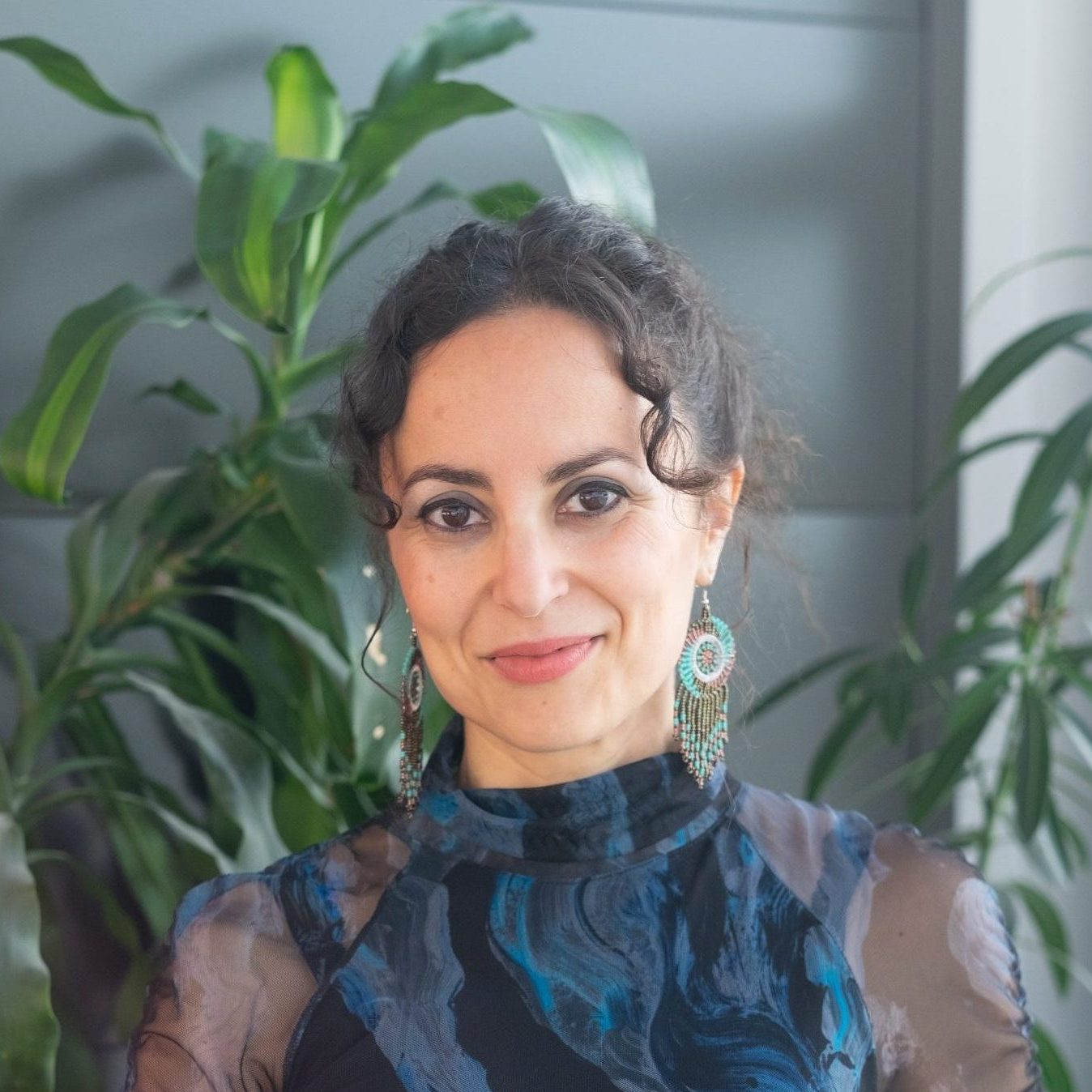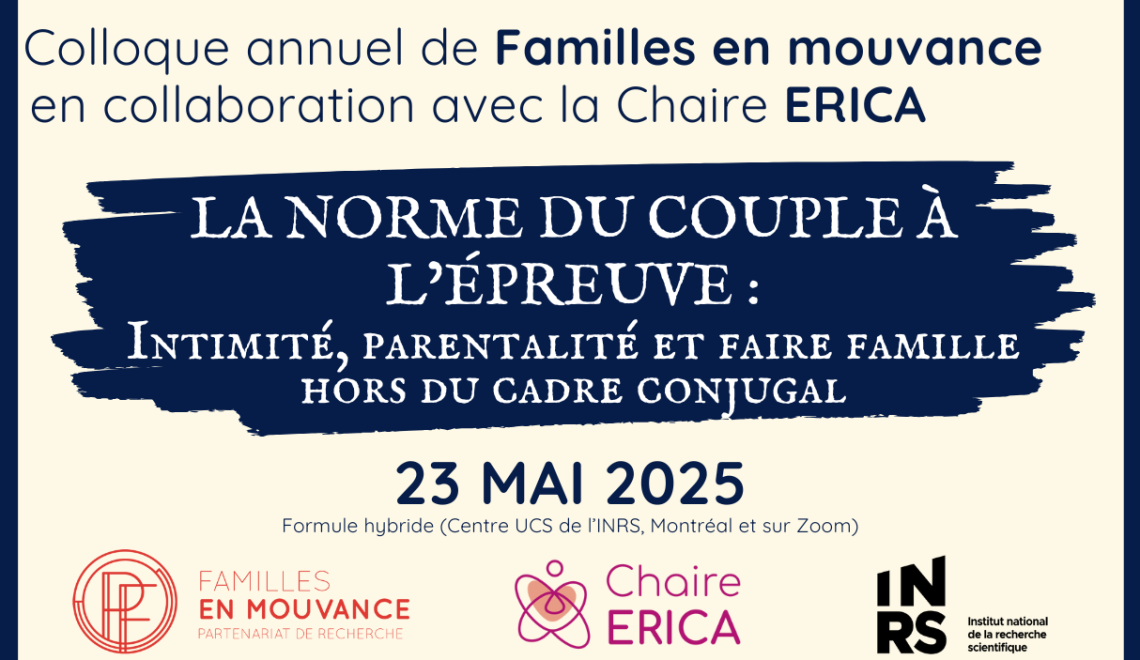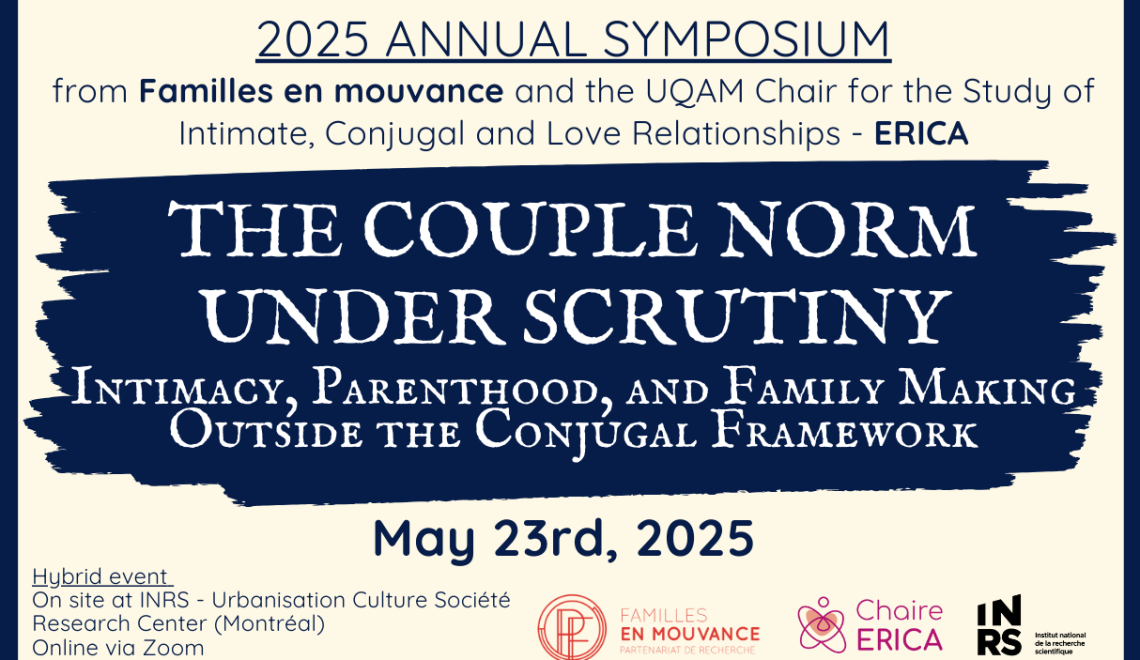
2025 Symposium // The Couple Norm Under Scrutiny: Intimacy, Parenthood, and Family Making Outside the Conjugal Framework
Annual Symposium from Familles en mouvance Research Partnership and UQAM ERICA Chair
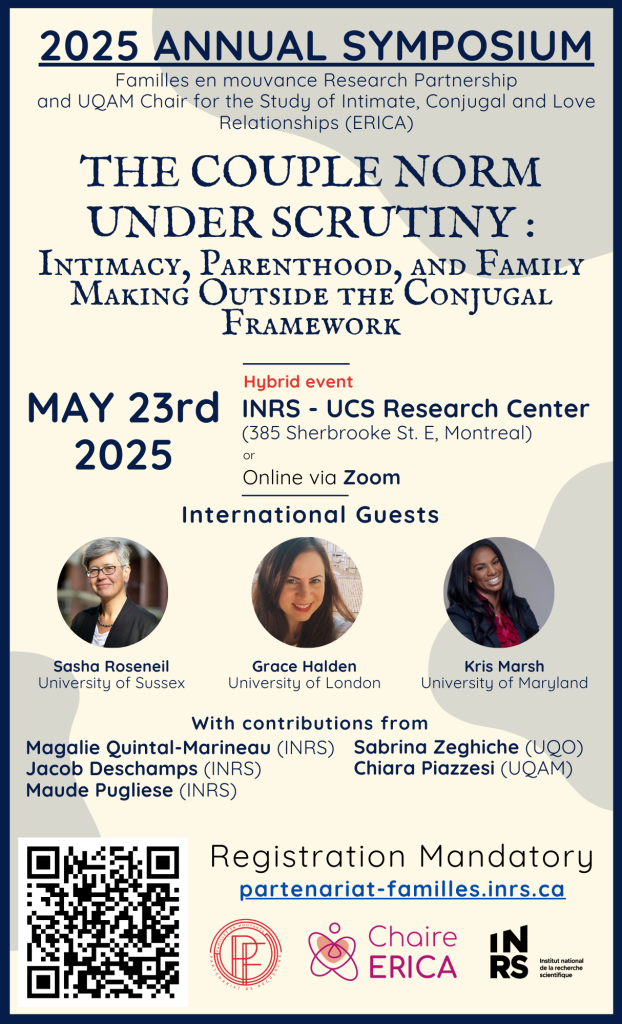
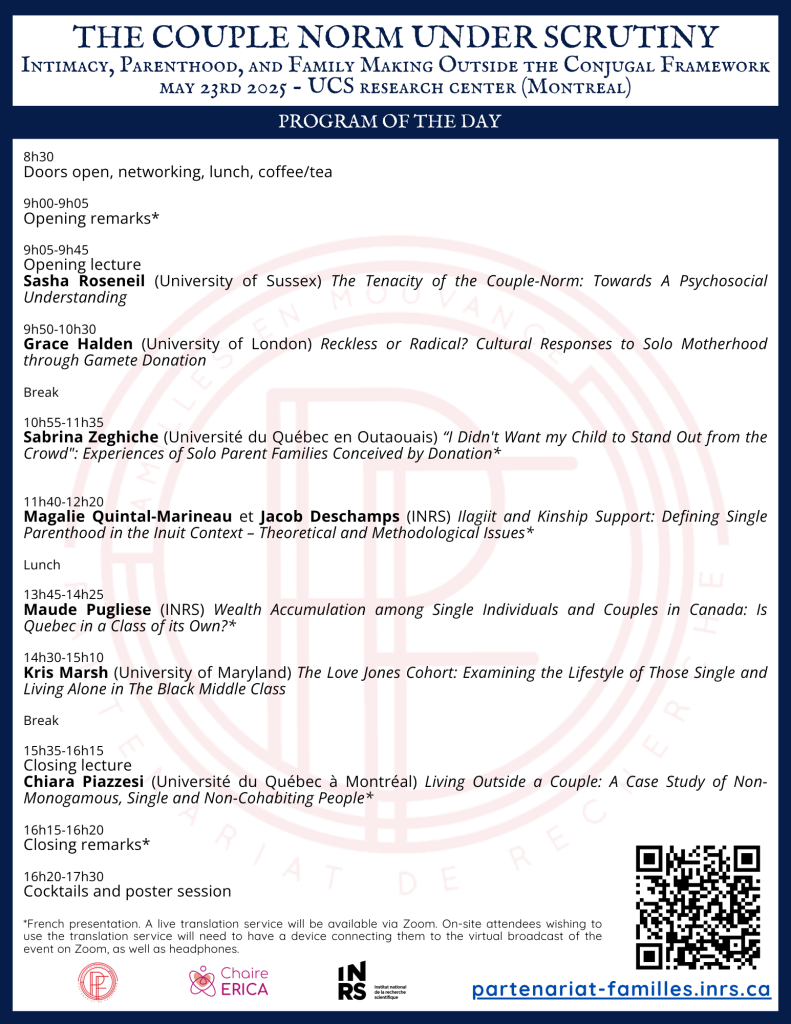
It is with great pleasure that we unveil the theme and program for the 3rd year of our annual symposium, organized in collaboration with the UQAM Chair for the Study of Intimate, Conjugal and Love Relationships (ERICA). This 2025 edition will bring together Quebecois and international researchers on the theme of The Couple Norm Under Scrutiny: Intimacy, Parenthood, and Family Making Outside the Conjugal Framework.
For the occasion, we welcome three international guests: Sasha Roseneil (University of Sussex), Grace Halden (University of London), and Kris Marsh (University of Maryland).
The event is free and open to all. It will take place in a hybrid format on Friday, May 23, 2025: on-site at the INRS – UCS Research Center (Montreal, near Sherbrooke metro station), or online via Zoom. Registration for attendance in either method is mandatory and can be accomplished by filling out the form below.
NOTICE: Presentations will be in both English and French. A live translation service will be available via Zoom. On-site attendees wishing to use the translation service will need to have a device enabling them to connect to the virtual broadcasting of the event via Zoom, as well as headphones.
Programming of the day
8:30 a.m.
Doors open, networking, coffee/tea
9:00 to 9:05 a.m.
Opening remarks*
9:05 to 9:45 a.m.
Opening lecture
Sasha Roseneil (University of Sussex)
The Tenacity of the Couple-Norm: Towards A Psychosocial Understanding
9:50 to 10:30 a.m.
Grace Halden (University of London)
Reckless or Radical? Cultural Responses to Solo Motherhood through Gamete Donation
10:35 to 10:55 a.m.
Break
10:55 to11:35 a.m.
Sabrina Zeghiche (Université du Québec en Outaouais)
“I Didn’t Want my Child to Stand Out from the Crowd »: Experiences of Solo Parent Families Conceived by Donation*
11:40 a.m. to 12:20 p.m.
Magalie Quintal-Marineau and Jacob Deschamps (INRS)
Ilagiit and Kinship Support: Defining Single Parenthood in the Inuit Context – Theoretical and Methodological Issues*
12:25 to 1:45 p.m.
Lunch (catered for attendees)
1:45 to 2:25 p.m.
Maude Pugliese (INRS)
Wealth Accumulation among Single Individuals and Couples in Canada: Is Quebec in a Class of its Own?*
2:30 to 3:10 p.m.
Kris Marsh (University of Maryland)
The Love Jones Cohort: Examining the Lifestyle of Those Single and Living Alone in The Black Middle Class
15:15 to 15:35 p.m.
Break
3:35 to 4:15 p.m.
Closing lecture
Chiara Piazzesi (Université du Québec à Montréal)
Living Outside a Couple: A Case Study of Non-Monogamous, Single and Non-Cohabiting People*
4:20 to 4:25 p.m.
Closing remarks
4:30 to 5:30 p.m.
Cocktails and poster session
*French presentation. English translation available via Zoom application. Attendees on-site must have device and headphones to access translation.
Context
For several decades now, people have been spending more and more of their lives outside of the framework of the cohabiting heterosexual couple, while the number of people living alone has grown significantly. Yet this change is taking place in a context in which the « couple norm » remains impressively strong. That is to say, living as a couple is explicitly or implicitly posited as the « normal » and expected way of both being an adult and making a family within many of the institutions that regulate our lives, be they legal, political, organizational, cultural, etc. In this context, the fact of being in a union or not strongly defines the social experiences of individuals, including their capacity to be recognized. One of the clearest manifestations of the persistence of this norm can be found in the deficit narratives that still surround alternative lifestyles to couplehood, notably single parenthood. Studies on this subject emphasize the challenges associated with being a single parent, often framing couples as ideal, single parents and their children being less healthy, less affluent, less surrounded by community and support, less successful at school, etc.
This symposium of the Familles en mouvance Research Partnership and UQAM-ERICA Chair will focus on research aimed at overcoming this type of deficit narrative. On the one hand, it will present work that focuses on the couple norm itself, its various manifestations and its repercussions in a variety of societies, including Quebec, showing in particular how the potential challenges faced by people who live and make a family outside the couple framework may depend on the tenacity of this norm. On the other hand, the symposium aims to bring together researchers interested in ways of living and making a family that do not correspond to the couple norm, by studying them for themselves – in all their diversity, their specific modalities and without seeking to compare them to the realities experienced by people in couples.




